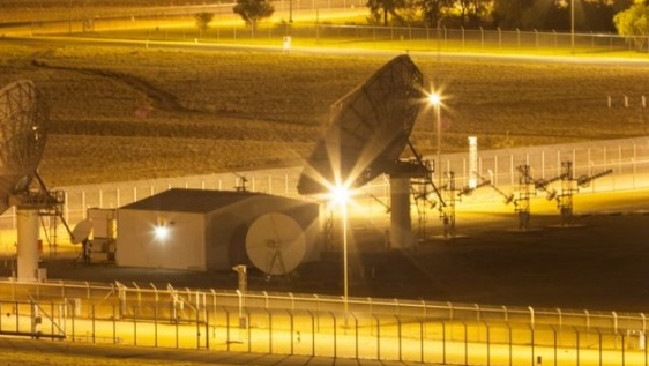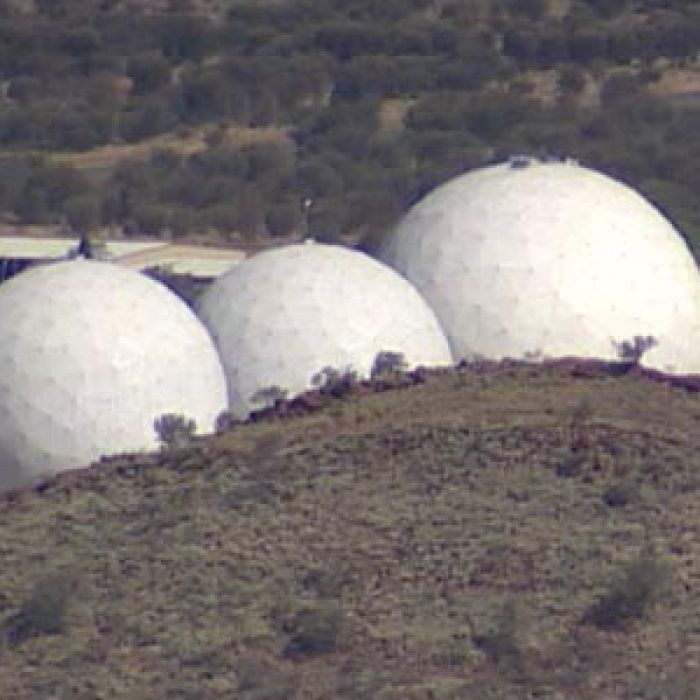In his speech, Mr Pyne declared America to be Australia’s “most important ally” and notes “potential adversaries” should understand an attack on Australia is an attack on its alliance with the US.

Chansey Paech, the Member of Parliament in which Pine Gap operates, did not score an invitation.

“In the centre of Australia we have Uluru and nearby its ‘evil twin’.”

communications satellite interception is now being conducted from the top secret Joint Defence Facility at Pine Gap, near Alice Springs.

But for the past decade it has also been involved in the US drone program, which has killed thousands of militants and some civilians in countries including Afghanistan, Pakistan, Yemen, Somalia and Iraq. "We're now locked into this global network where intelligence and operations have become essentially fused," Professor Ball told 7.30. "And Pine Gap is a key node in that network - that war machine, if you want to use that term - which is doing things which are very, very difficult I think, as an Australian, to justify."
